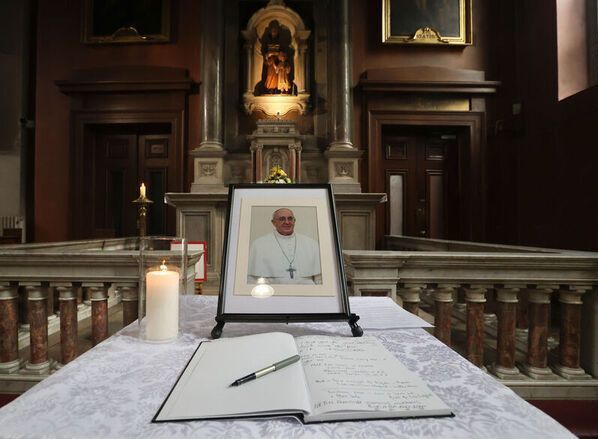An Irishman who was hanged in Rhode Island on St. Valentine's Day in 1845 has been pardoned by Governor Lincoln Chafee in a move that has been widely hailed.
Chafee, according to the Providence Journal, signed a proclamation granting a full pardon to Irish immigrant John Gordon at the Old State House on Wednesday of last week.
The signing was in the very room that his trial is believed to have taken place, the report stated.
"Good work. Well done. Long overdue," Chafee said after signing the proclamation with state Senators Michael J. McCaffrey and Erin P. Lynch and House Speaker Gordon D. Fox looking on.
The pardon, Chafee said, was in keeping with Rhode Island's tradition as the first colony to declare independence and as the second state in the nation to reject capital punishment. Capital punishment was outlawed in Rhode Island a few years after Gordon became the last man to be hanged in the state.
Gordon's execution followed the murder of Amasa Sprague, a wealthy mill owner whose slaying on the banks of the Pocasset River on New Year's Eve 1843 led to Gordon's execution.
Sprague, a husband and father, was killed on what was his wife's birthday and the couple's wedding anniversary.
Reported the Journal: "As lore goes, suspicion fixed on the Gordon family, Roman Catholic immigrants from Ireland. Sprague had several clashes with John's brother, Nicholas, about his workers coming to the mill drunk after buying liquor at Nicholas' store. Sprague, the brother of U.S. Sen. William Sprague, convinced officials to suspend Gordon's liquor license. "
Authorities arrested John, his two brothers, mother and even Nicholas' dog. The Gordons' trial came at a time of hysteria against Irish Roman Catholics, the first group to immigrate en masse threatening the hold of Yankee Protestants. A judge was said to have instructed the jurors to give more weight to Yankee witnesses than Irish witnesses. The jury - which included no Irish - acquitted William, but found John guilty. John's appeal was rejected by the same judges that oversaw his trial."
Gordon's pardon was championed Rep. Peter Martin, who served as master of ceremonies at the Old State House gathering.
Ken Dooley, a playwright whose production detailed Gordon's trial, approached Martin about taking up the cause. Martin, whose father told him Gordon's tale as a child, became convinced a pardon was the only way to right a grave injustice.
"We can never prove Gordon's innocence definitely," Scott Molloy, a Gordon supporter and University of Rhode Island professor, saidat the pardon ceremony, "but we can prove prejudice and discrimination helped convict him."
More than 100 people attended the event, including members of the Friendly Sons of St. Patrick and Public Defender John J. Hardiman. His office backed the measure as an opportunity to teach about wrongful convictions and improvements to the criminal justice system, the Journal report added.
In an ironic historical twist to the story, Chafee's family fortune is tied to the A.&W. Sprague Company's eventual collapse, the report stated.










